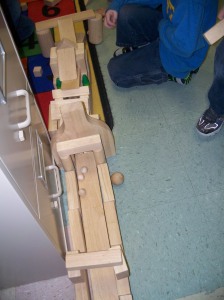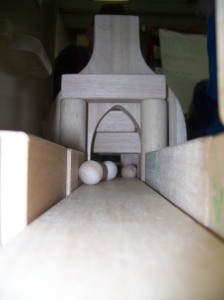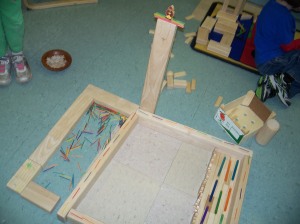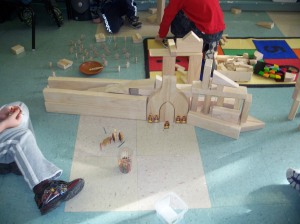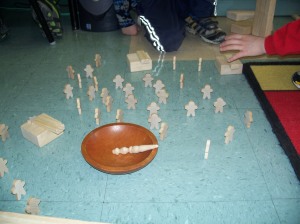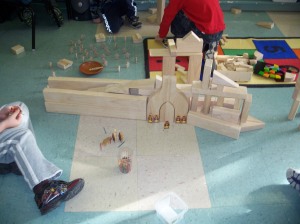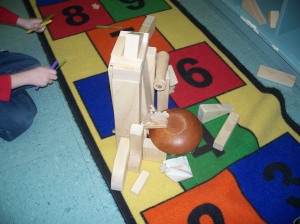"So much beauty around us, for just two eyes to see. But everywhere I go, I'm looking" Rich Mullins
Saturday, December 22, 2012
Becoming Best Friends
A few posts back I mentioned I was going to have a new best friend. Well, I do now. And he is great! He is funny, and knows so much. He really wants to do what he can to be a good helper too. I really like him. I am so glad I got to know him.
It is so funny how our attitude works, isn't it? If we allow ourselves to continue to think badly about someone, we will. We will never be able to see the good in them because we are so focussed on what we do not like. But when we make up our minds to see the good, we find the good outweighs the bad. We don't have to ignore those behaviours that might drive us crazy, but those habits seem to decrease as the positive ones increase. And we can do what we can to help change those negative behaviours.
As we enter a new year, and the second half of our school year, let this be your resolution: See the good, help change the "bad", and make new best friends!
Sunday, November 11, 2012
Losing my Mojo...
I had to plan an integrated unit for a course I am taking. Only problem is, I feel like it has set my teaching back 20 years. I look at the activities planned and all I can think, "it's a theme. I hate themes." It isn't authentic. And I fear it won't be authentic for my students. Because if I don't like it, if I have no passion for it, how can I expect my class to?
I am missing something and I don't know what it is. The more I think about it, the more I struggle. It's like I have lost something and I can't figure out where it might be. And in the mean time, I am filling in blanks and putting out fires.
How do you re-ignite that teaching spark? How do you figure out what it is you need to do and fix it? I find I have so many questions and no real answers. I guess I will just have to keep trying and doing. Surely somewhere, sometime, or someone has the answer.
Sunday, October 14, 2012
I'm going to have a new best friend!
If my new best friend and I were both adults in an office, we probably would have a tense working relationship. I would stick to my space and he would stick to his. We would interact only when necessary. But, guess what? We are not both adults. I am the adult and he is not quite 5 yet. Because I am the teacher and he is the student I don't have the "luxury" of polite avoidance. I don't have the option to just walk away.
I really have two choices:
1. Trudge through this year with a chip on my shoulder and frustrated - or-
2. Change my attitude.
I choose to change my attitude.
So, starting Monday, I will have a new best friend! And, really, I am very excited!
Monday, August 6, 2012
Kinderchat Challenge # 6
What are my "tricks of the trade" to get through those days that are more stressful than others? I really only have one "trick". I refuse to fight the power. So, on those days when I am not at my best, or the children are off, we spend a lot of time in "child directed activities". And by that I mean PLAY! My classroom is set up in centres. You can see the various centres below. There is math, science, language arts, blocks (can't see them, but I promise they are there!), sand, art, library, and dramatic play.
I make sure there are a variety of activities available in each area, some old, some new. I want children to be challenged, but not overwhelmed. So, on those days when things are just not quite 'there' we spend a lot less time listening to Mrs. Marshall teach to the whole class. We spend more time in small groups, working and playing together.
Tuesday, July 24, 2012
Kinderblog challenge #4!
If for some reason, I woke up and found out I could no longer teach, what would I do instead? Well, I would do something as far away from education as possible! Being an "all-or-nothing" type of person, if I couldn't teach, or be a part of the teaching community anymore, I would want to have nothing to do with education. But, the question is what would I do...
Well, I know what I would not do! I would not be a housekeeper. Because I am really bad at that.
I would not be a baker, because that would mean I would have to wake up too early.
I could not be a chef because it would get too hot in the kitchen and I am not a nice person to be around when I am hot.
I could not be an actor because I cannot keep a straight face.
Now a back-up singer...Hmmmm...that might be fun! Of course, someone has to think I sing well enough to back them up. And, I am no longer 20, so that limits my options there.
We have a lot of books around our house (a lot, I am not kidding!). Perhaps I could own a used book store?
I have always fancied owning chickens and an organic apple orchard. Sounds intriguing, but, again, a lot of work.
As it turns out, I don't know what I would do if I had to quit teaching. I don't know if I will be a classroom teacher the rest of my career, I do love research and putting research into practice. But a teacher I am and a teacher I will always be. I can't help myself, it is my passion.
Sunday, July 15, 2012
Parallels in Learning: How Block Play and the Reading Process are Similar
I am a big fan of block building. I find I am always amazed at the intricacies in the building structures that the children create. We don't begin our block building with big ornate fortresses. We generally begin small, simple. As we gain confidence and experience we notice how our block building expands. It occurred to me one day, that the stages of block building seem similar to the stages of learning to read. Both are a process. Both have a basis laying a foundation before you move on to the next level.
Saturday, July 14, 2012
Kinderchat Challenge #3: List your Pet Peeves
1) When students come in 30 minutes late for class--repeatedly!
A lot goes on in that first 30 minutes of the day, and for many students, if they come in late, their entire day is thrown off. Routine is important to children!
2) Lace up shoes when the child cannot tie them!
It isn't even so much that I honestly don't have the time (and really, I don't), but children need to be responsible for themselves and their belongings. If they are constantly having to go to the teacher for help with a simple task, the message they get is that they are not competent. Give the child velcro shoes, or buy the elastic laces. Give the child independence in their daily routine and give them pride!
3) Lack of communication!
The responsibility for this lies first on the teacher, but then on the parents. It is up to the teacher to foster an environment that lets parents know they are a team for the student. But parents need to realize that all of those 'little' things that happen, can be perceived as big things through the eyes of the child.
4) Too much communication!
I love your child, I really do. But I cannot answer 50 e-mails a day about little Johnny. And, if you e-mail me with an issue like, "When will you put up the next blog post?" or, "My child didn't receive their chocolate milk today, what went wrong and how will you fix it so it doesn't happen again?" I will not answer you. Ever. Really, I mean it!
5) I am human and I have a life and a family too!
Yes, your child is my responsibility when they are in my care. But my child is my responsibility all of the time. So if I have to take time off because I want to see my child do something, or they need to go to the doctor, I will. Just like you take time off for your child. And if you see me out and about during the day, I will stumble over myself to explain why I am not at school. Because that is the cultural reality for teachers (at least around here). We aren't given "vacation days" or "personal days". We have sick days and family days (for when our family needs us). That is it. I am not complaining, because I do get to go to the beach in July. But also know that just because I "don't work" in the summer, I also don't get paid!
I love my profession, I love my school. I wouldn't do anything else. And, I suppose if I didn't have those 5 pet peeves, my job would be pretty boring indeed!
Enjoy!
Block Play in Kindergarten
Wednesday, July 11, 2012
Classroom Environment
Sunday, July 1, 2012
What I Learned This Year- Inclusion
This particular group of students was what I like to call the "perfect storm". It was a lively combination of autism, developmental delay (which I strongly suspect is actually Fetal Alcohol Syndrome), children on the younger end (half didn't turn 5 until Oct-Dec), and a few that if they were diagnosed with ADHD or learning disabilities later on wouldn't surprise me. I went home many Fridays conflicted. On the one hand I was glad it was Friday, but on the other hand, I was wishing I had one more day, one more chance to get it right. It was a rocking good year, I tell you!
But what did I learn from this group that I couldn't have learned from anyone else?
I learned:
-Slow down, take your time
-Look closely at everything
-Don't judge
-In every situation, there is an explanation (and sometimes a really funny story!)
-Kindergarten children will tell you ANYTHING (I already knew that one, but I certainly wasn't prepared when one child told me his uncle was sent to jail).
-Play is not a 4 letter word! And I refuse to say "inquiry based learning" again. It is play and play is how we learn. Because that is how our brains work!
I learned about Inclusion in a way I have never understood before. I have taught preschool and kindergarten at an inclusive day care. I have worked with children with autism, Downs Syndrome and developmental delay. I thought I understood what inclusion was. But this year taught me that inclusion is more than just having children with special needs in the classroom. Inclusion is a not singling out, not propping up, not paying lip service to special needs. It is community. It is being together through thick or thin. It is learning to communicate my needs in such a way that everyone understands. It is teaching children that fair isn't always equal. Some children need a little more than others. Sometimes we all need a little more than others. It is helping others and allowing others to help us. It is caring enough about someone that you are willing to deal with a melt-down because you know, in the end, they will be better off without getting their way.
I am thankful for 18 students. All unique, all individual's, all teachers to me.
Sunday, May 6, 2012
Why Going to Church Should Be More Like Going to a Baseball Game
I love baseball. I love to watch it on tv, I love to go to a game. This summer, when we go back to Illinois to visit my oldest son and my parents I hope to go to a Cubs game as well as a Rockford Riverhawks game. About 2 years ago, my husband, daughter, youngest son, and a good friend all went to a Cubs game, and something about the atmosphere there struck me. There was a feeling of ultimate camaraderie. Although I only knew the other 4 people I was with, I felt like everyone there was on my side. This got me to thinking, isn't this what Church should be like? So I sat down and composed a list of reasons why going to Church should be like going to a baseball game. It is not exhaustive, and I am sure if I had given myself more time I might be able to think up more.
Here are my reasons (in no particular order) why going to Church should be more like going to a baseball game:
1. High fives when exciting things happen. High fives for everyone, not just those you came with (this was an exciting part for my daughter. Something exciting happened- the Cubs actually looked like they might do something ha,ha- and I looked over at my daughter who was high 5ing everyone around her).
2. Everyone is excited to be there. No one is there out of duty or obligation.
3. Everyone sings loudly, regardless of ability.
This is my list. Can you think of any others?
Thursday, May 3, 2012
Loving the Church
Thursday, March 22, 2012
Wonder
Have you ever watched a movie that so impacted you that you were compelled to watch it? One that the more you watched it, the more excited you became so that by the end of it you knew you must watch it again, you must own it? Maybe you even began to note certain lines because it was so important to you? The film,Mr. Magorian’s Wonder Emporium was just that film for me. From the very first line I was hooked.
At the very beginning of the film, the character Eric is narrating and he says something that is so profound that it made me not only sit up and listen, but I made my children back up the DVD so I could write it down: “I don’t know why grown-ups don’t believe what they did when they were kids. Aren’t they supposed to be smarter?”
That one line set the tone for the rest of the movie and kept me literally so enthralled I could not take my eyes and ears off the screen. That one line personifies what it means to have child-like faith. To believe because that is just what you do, because there is no other option.
For one year I was a youth group sponsor. That year taught me many things, but most importantly it taught me that I am not a good youth group sponsor. My problem is that I think teenagers should be more responsible than 5 year olds, because they are older and supposedly more mature.
I also learned that it is almost too late to build a spiritual foundation if we wait until our children are teenagers (and I say almost only because someone out there will tell me of their own conversion in teenage years, even though I would probably guess they had some spiritual foundation as a young child). By the time we are teenagers, we have been too jaded by the world. By the time we are teenagers and if we haven’t had a spiritual upbringing, we have had all of our spiritual knowledge taken away by our culture, education, the media, and whatever else may be out there.
One night we had a discussion on whether or not we are born with a negative outlook on life (these particular teens loved to have these deep discussions). This one young man was convinced that we are all born with this negative outlook. I felt so sorry for him. In all my work with young children in many different situations and communities, I have never come across a young child who was unhappy all the time. Many young children are forced to deal with very negative situations in their own life, and many do deal with them in ways adults might term negative, but each child has as an underlying grounding of a positive nature. They laugh at silly knock-knock jokes that don’t make sense. They smile when they run, just because they can run. The world is beautiful and full of wonder. And this, in its essence, is child-like faith. It is the knowledge that everything is good just because God said it was.
What does it mean to have child-like faith? What does Jesus mean when he says we must have the faith of a little child in order to get into heaven? Doesn’t Paul then contradict this in I Corinthians when he speaks of “putting away childish things”? Paul doesn’t contradict, because being child-like and childish are two different things. One is enviable, and one is immature. Many would define child-like faith as a kind of benign, blind faith, a fatalistic one even. One that says, “Well, I guess this is just what Jesus wants or would do.” But that isn’t child-like at all. In fact, that is childish faith, faith that doesn’t last when the going gets tough.
Child-like faith is something totally different. It is seeing beyond the ordinary into the extraordinary, a wonder in the common things, finding the supernatural in the natural. It is playing with the box more than with the toy that was once contained in it. It is a trust that is so natural that to not trust is incomprehensible. It is a faith that believes because that is the only natural course of action. It is a faith that says, like Peter, “Lord, where else could I go?”
One year at the child care centre I worked at (a secular centre), there was a big discussion on how people got here. Some said people were always here, some genuinely didn’t have a clue. Because I like to see where children’s thoughts are headed, I stayed out of the conversation and just listened. One wise young man spoke up with very good authority.
“Listen,” he said. “I know how people got here.” All of the other children were silent. “God made a man and a woman. They had babies, and then those babies grew up and had babies, and so on. That is how we got here.” The rest of the children were very satisfied with that answer and that pretty much ended the discussion. The voice of authority had spoken and all were satisfied. I, myself, was very impressed. So I mentioned it to his mother. Her response is one that I will always remember, because it solidified what I have always believed about the spiritual growth of young children. She said, “Not too bad for a kid who’s never been to church in his life.”
Notice there was no talk of Darwin or evolution in any of this conversation. No one brought it up. Why? Because evolution presupposes that we are born a blank slate, knowing nothing. We are all a product of random chance. But because we do know things from birth, because God has given us a seed of knowledge of him, this young five year old child could tell the truth with confidence. God made us. It’s a fact. There was no room for discussion of this, and no one contradicted him because they, too, knew he was right.
My little dollar store purchase of a Webster’s English Dictionary Concise Edition for school, home and office (1999- reprinted in 2002- Geddes and Gosset, New Lanark ML11 9DJ Scotland) defines “wonder” as, “a feeling of surprise or astonishment; something that excites with such a feeling; to feel wonder; to be curious; to speculate, to marvel.”
And that is what we have allowed ourselves to loose as adults. We loose that sense of wonder because we have too many more important things to do. We don’t look at the rainbows anymore, or smell the roses. When we sing in the worship service that is all we do, sing, we don’t feel it. We wish we could, we say each year that this is the year we will slow down, but really, we continue in that rushed way we have.
My family often makes fun of me because I insist on singing loudly, if sometimes off key. I even mess up the words sometimes. And I respond, “Maybe if everyone were as excited about Jesus’ conquering death, you wouldn’t hear me sing at all because they would singing louder.” Not that I am more holy or religious than anyone else, but I have chosen to take the time to wonder that God, who made the universe just by saying it was so, cares about me and you and everyone else in this world. I have chosen to try to regain that child-like faith. Sunday is now my favourite day of the week.







